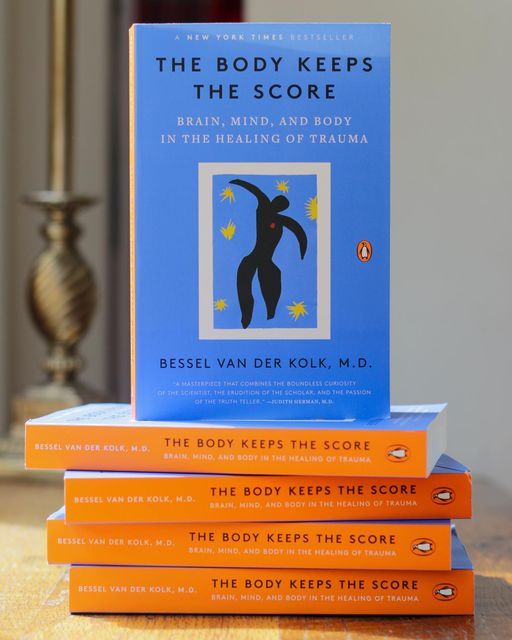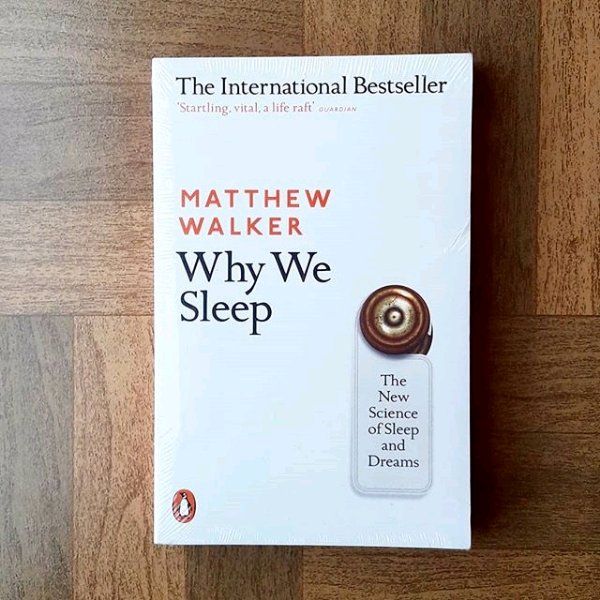Two ‘must-read’ books
I love books which help me understand what makes us tick as human beings—how we think, why we think the way we do, why and how our bodies and brains function (or malfunction). I’m fascinated with the complexity of what it is to be human.
I’ve just listened to two utterly wonderful and compelling books—two which I would urge every minister to read, one of which I would urge everyone to read. Both are secular books, and contribute much to help us appreciate God more or to help people better.

The first is ‘The Body Keeps the Score’ by Bessel van der Kolk. This is a book about trauma and its effects on the mind, brain and body. We live in a desperately broken world where unspeakable things happen to people, and that brokenness impacts people in far deeper ways than we realise. And at times such a person finds themselves sitting in front of a minister seeking help. We need to have a grasp of the breadth and depth of impact that dark circumstances can have on people.
To read this book will fill you with a compassion for people. It certainly will not make you a trauma counsellor, but it will prepare you. It will equip you to listen better, to understand more, and to avoid simplistic solutions (even ones that sound biblical, but fail to take into account the complexity of our psychosomatic nature).
One of the things I liked about the book is that van der Kolk sees us as complex entities—not simply brains on sticks, or a bundle of chemicals needing rebalanced, or a collection of symptoms needing individually treated. He sees people as people, and to be treated as individuals—no ‘one size fits all’ approach.
My recommendation comes with a couple of comments (not quite caveats):
First, because of the nature of the book—full of human stories as well as science—there is a darkness to some of it. It will not be for everyone but I really believe that all ministers should read it.
Second, there is one thing lacking—the hope-giving, life-changing power of the Holy Spirit. The things we experience, the evil done to us, or by us, is not the last word of our story—God still has the pen in his hand. As Ray Ortlund says in his commentary in Isaiah, “Our past is unchangeable in fact, but beautiful in potential because there is a redeemer.” This book is, in a sense, about helping pastors understand what impact the ‘unchangeable in fact’ can have for some people.

The second book is ‘Why we Sleep’ by Matthew Walker. Everyone ought to read this. Or listen to it. It is an astonishing exploration of what sleep is, and why we sleep. Again it is a secular book with no reference to God (and plenty of references to evolution and mother nature!), but it will fill you with amazement at what God has designed sleep to be for us—and you will find yourself worshipping God because of it!
Not only so, but it will give you an appreciation of this incredible gift that God has given to us. It will change your attitude to sleep itself. It will also perhaps help us to put to death the idol of work—of piling in long hours, burning the candle at both ends, thinking that we know better than Solomon (“In vain you rise early and stay up late, toiling for food to eat” Psalm 127:2)—and help put to death the pride we take in getting by with little sleep (I know, I’ve been there).
Sleep is a God-given wonder, designed to benefit our health in massive ways, to safeguard our physical and mental and emotional well-being, to lay down memory and connect diverse aspects of knowledge, to reinforce physical and motor skills, and many more things besides. God does more for us in the act of sleeping than I ever realised. Get the book—read it, and then go to bed earlier, after having worshipped your kind Father.
